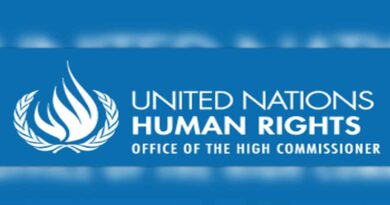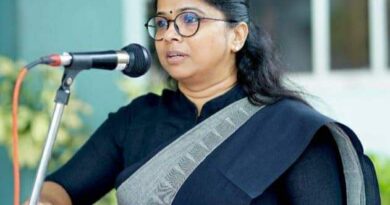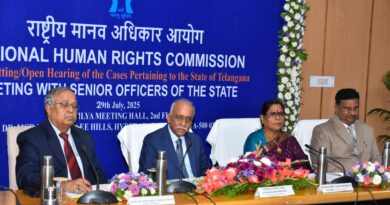Human Trafficking Victims Must Be Protected Even in Fight Against Terrorism – UN Expert
Special Correspondent
NEW YORK (27 October 2021) – Victims of trafficking by terrorist groups are too often being punished instead of protected. States fail to identify and protect victims, often because of their alleged association with terrorist groups, and related stigma, discrimination, and racism, a human rights expert told the General Assembly today.
“States have an obligation – without exception – to identify and protect victims of human trafficking and must become more attuned to the needs of people trafficked by terrorist groups and as a result of conflict,” said Siobhán Mullally, UN Special Rapporteur on trafficking in persons.
“Victims of trafficking, instead of receiving protection, are being punished and stigmatised,” she said in presenting a report to the General Assembly that analyses continuing failures to identify and assist victims of trafficking, and to protect their human rights.
“It is a very serious concern that, where trafficking occurs in the context of terrorism, discrimination by States leads to failures of protection, and increases risks of trafficking and re-trafficking, including of children.” Mullally said.
“Trafficking for purposes of forced marriage, sexual exploitation, forced labour and forced criminality is a strategy used by terrorist groups, and is continuing with impunity because of these failures.”
She warned that vulnerable children are disappearing from refugee camps and from camps for Internally Displaced People, adding: “young people are being targeted online by terrorist groups and recruited into lives of exploitation, a problem that has become even more severe during the COVID-19 pandemic.”
“In addition to being exploited for sex or forced labour, children may also be exploited in combat, for planting explosives, carrying out armed attacks and suicide bombings.”
States and all humanitarian actors have obligations under the Palermo Protocol, which aims to prevent, suppress and punish trafficking in people, and under international human rights law, to identify victims of trafficking early and then to provide specialised medical, psychological and legal assistance.
“The obligation of non-discrimination is a core norm of international human rights law, and applies to States’ obligations to protect the human rights of all victims of trafficking,” she said.
She called on peacekeeping operations to do more to prevent human trafficking and to identify and protect victims, especially in countries in transition from conflict to peace.



